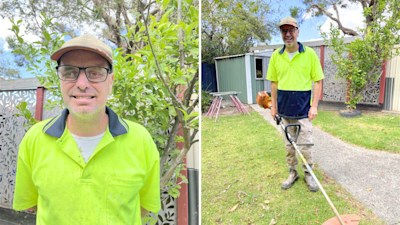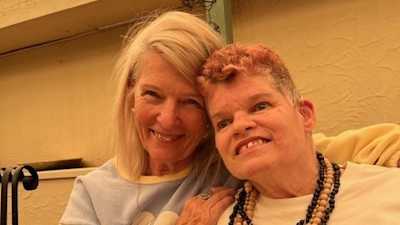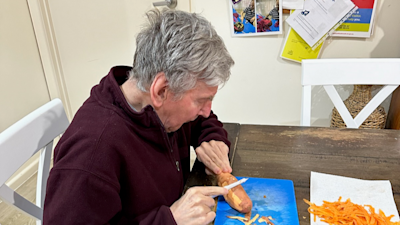Our Disability Accessibility Wellbeing Network (DAWN) Committee shares some insights on what people with disability may be experiencing during COVID-19.

We are living in unfamiliar times. As a country, we have recently weathered bushfires, floods and severe storms. We now face the unprecedented threat that is the COVID-19 pandemic.
This is an overwhelming time for anyone – but imagine also living with a brain injury, neurological condition, or any other condition where structure, stability, routine and consistency are core to your health and wellbeing. It is normal for people to experience a degree of anxiety, but for someone that lives with a pre-existing anxiety disorder, including phobia-oriented disorders such as Obsessive Compulsive Disorder (OCD), this anxiety can be exponentially increased.
For people with disability, the pandemic goes beyond the issue of fighting for groceries, it interrupts routine and access to specific foods or products. Some people do not understand the sudden change to or lack of products - this can cause great distress. Many workplaces have also locked down, meaning people may not have the security or comfort of going to a familiar place and interacting with the same people on a day to day basis.
The allocated times in supermarkets for people with disability may not be accessible to those who need it. Entry to the supermarket during the designated community hours requires a government issued ID. Not all people with disability will have this ID, and they may be prevented from accessing this service, causing further impact and disruption.
Public transport changes due to COVID-19 have also created more obstacles for people with disability. For example, buses are no longer opening their front doors - in order to minimise risk to drivers. This makes public transport less accessible for people with mobility challenges, as rear doors to buses are higher off the ground and the stairs steeper than the front entrance.
People with disability undertaking duties that require them to be in the workplace (e.g. provision of direct care and support to clients) may be feeling vulnerable as they need to go to work* to maintain their income. In some cases, they may be more vulnerable to the effects of COVID-19 if they contract it.
A person with disability may not always be able to articulate what is wrong, or how they are feeling, and this distress can manifest itself in many ways, including a change in the person’s behaviour. The person may appear to be more anxious, defensive, teary, worried or withdrawn, and reassurance becomes difficult to offer within this uncertain climate.
Supporting each other
In these uncertain times, although people may not be able to be physically together, there are many things that can be done to support one another at work and outside of work including:
Call, video-call, message or email people to check in with them to let them know they are not alone;
Help people to use technology to stay in touch. If they don’t know how to use Skype, WhatsApp or Messenger - teach them;
Ask if someone needs help or support with something. Do they need groceries, medications, assistance to pay bills? You could leave items at their front door, then knock and stand back just to make sure that the person receives them;
Help people understand what they need to do to protect themselves, including hand-washing and social distancing;
In a workplace, if someone is anxious about hygiene, find out how the local area is being cleaned or help them clean their desk with disinfectant;
Tell jokes to make people laugh or use humour (appropriately and respectfully);
Offer to be a support person for someone when they are feeling anxious;
Watch the same movie from separate locations then discuss afterwards;
Encourage them to remain engaged and connected;
Help people to do online shopping;
At work, have lunch with others from a safe distance– at the very least ask others how they are; and
Have 3 self-care strategies to reduce stress e.g. in a workplace find a quiet place to go and take some deep breaths, at home it might be to meditate. Even if isolated at home, go outside and get fresh air (or in a worst-case scenario open a window), have a bath, eat chocolate or anything that makes you feel good.
About DAWN
DAWN is a Life Without Barriers employee network which supports staff with disability to come together and share ideas about how we can support people with disability, chronic health conditions and mental health conditions.
*As an organisation, Life Without Barriers are adhering to a variety of strict requirements to ensure that all staff are safe in the workplace.
Photo by panitan punpuang on Unsplash


